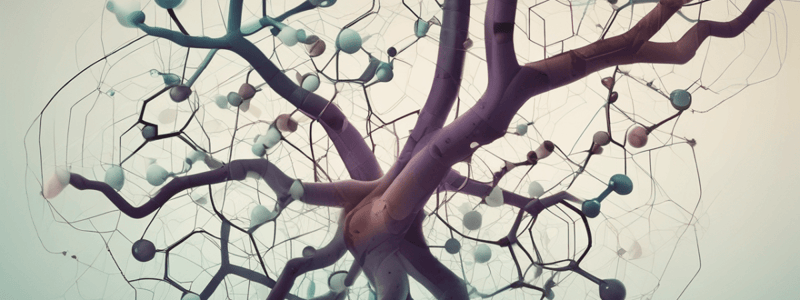Podcast
Questions and Answers
Flashcards are hidden until you start studying
Study Notes
Branches of Chemistry
- Inorganic Chemistry: study of inorganic compounds, typically derived from mineral sources
- Organic Chemistry: study of organic compounds, typically containing carbon and hydrogen
- Physical Chemistry: study of the physical properties and behavior of matter at the molecular and atomic level
- Analytical Chemistry: study of the analysis and identification of the chemical composition of substances
- Biochemistry: study of the chemical processes and substances that occur within living organisms
Atomic Structure
- Atoms: smallest units of matter, consisting of protons, neutrons, and electrons
- Protons: positively charged particles in the nucleus of an atom
- Neutrons: particles with no charge in the nucleus of an atom
- Electrons: negatively charged particles orbiting the nucleus of an atom
- Electron Shells: energy levels that electrons occupy around the nucleus
Chemical Bonding
- Chemical Bond: attractive force between atoms that holds them together
- Covalent Bond: bond formed by sharing electrons between atoms
- ** Ionic Bond**: bond formed by the transfer of electrons between atoms
- Hydrogen Bond: weak bond between atoms with a hydrogen atom bonded to a highly electronegative atom
Chemical Reactions
- Chemical Reaction: process in which one or more substances are converted into new substances
- Reactants: substances that undergo a chemical reaction
- Products: substances formed as a result of a chemical reaction
- Catalyst: substance that speeds up a chemical reaction without being consumed
- Activation Energy: energy required for a chemical reaction to occur
Studying That Suits You
Use AI to generate personalized quizzes and flashcards to suit your learning preferences.




